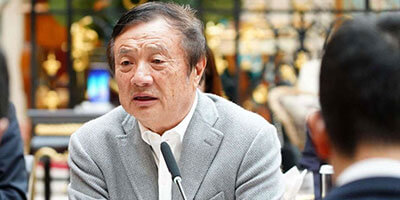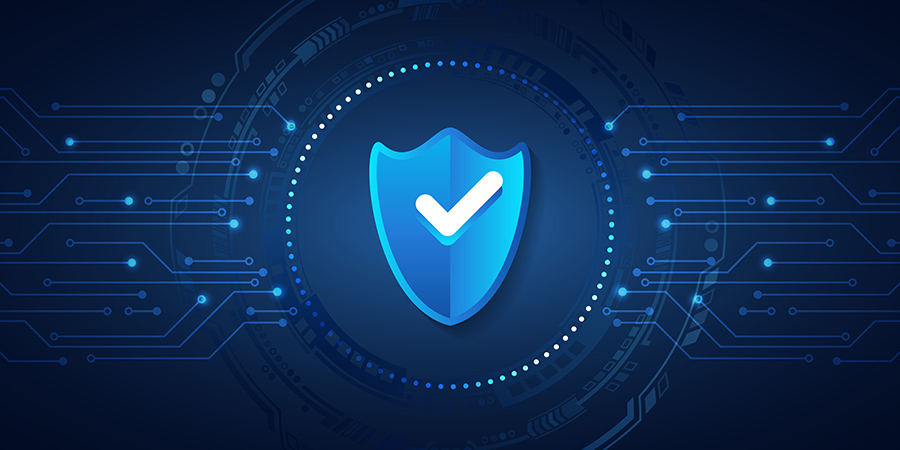
Huawei founder and CEO Ren Zhengfei has issued a defiant statement on the future of his company and declared that the Chinese ICT leader will be not be destroyed by a piece of paper from the US government.
In his latest briefing with the media the Huawei figurehead launched a robust defense of the company’s practices and security record – and vowed that it was well prepared following the ban imposed on the vendor by the Trump administration.
Addressing questions about the impact of the White House’s recent executive order, Ren noted: “What the US will do is out of our control. To us, the most important thing is to do our job well. I would like to take this opportunity to express my gratitude to the US companies that we work with. Over these 30 years, they have helped us to grow into what we are today. They have made many contributions to us. As you know, most of the companies that provide consulting services to Huawei are based in the US, including dozens of companies like IBM and Accenture. In the face of the recent crisis, I can feel these companies’ sense of justice and sympathy towards us.”
The Huawei founder then expanded in greater detail about its relationships with US companies. “The US is a country ruled by law. US companies must abide by the laws, and so must the real economy. The media should understand that these US companies and Huawei share the same fate. We are both players in the market economy. Our close relationships with US companies are the result of several decades of effort on both sides. These relationships won’t be destroyed by a piece of paper from the US government.”
The supply of products to Huawei from international partners was also discussed. “Our company will not end up with an extreme supply shortage. We have got well prepared. Even if there is an insufficient supply from our partners, we will face no problems. This is because we can manufacture all the high-end chips we need ourselves,” said Ren.
As long as these companies can obtain approval from Washington, Ren commented that Huawei will continue to buy in large volumes from them. “It may be the case that they cannot obtain approval quickly. We have ways to go through this transition period. Once approval is granted, we will maintain our normal trade with these US companies and work together to build an information society for humanity. We don’t want to work alone.”
In an answer to a direct question about why the US is targeting Huawei, Ren responded: “ I don’t know exactly what [those US] politicians are thinking. I think we should not be the target of US-led campaigns just because we are ahead of the US.”
The Huawei founder also responded to questions about overall disruptions to the international ICT market. “Europe will not follow in the footsteps of the US, and the majority of US companies are communicating closely with us. We will certainly be able to continue serving our customers. Our mass production capacity is huge, and adding Huawei to the Entity List won’t have a huge impact on us. We are making progress in bidding worldwide.”
With regards to Huawei’s own business outlook for 2019, Ren added: “Our growth will slow down, though not by as much as everyone may imagine or are projecting. In the first quarter of this year, our revenue grew 39% over the same period last year. This rate decreased to 25% in April, and may continue decreasing towards the end of this year. But the US ban will not lead to negative growth or harm the development of our industry.”
In sectors where Huawei have the most advanced technologies, at least in the 5G sector, Ren added that there “won’t be much impact”. Not just that, but Huawei competitors won’t be able to catch up with it within two to three years.
5G standards are widely considered to have a huge impact on society, added Ren. The company appears to be well prepared for the future in terms of technology innovation andR&D. Huawei has 26 centers of expertise for R&D globally, over 700 mathematicians, 800 physicists, and 120 chemists working at Huawei, according to Ren. He further noted that Huawei have the most 5G standard-essential patents in the world – about 27% of the total.
“We have an Institute of Strategic Research, which provides a large amount of funding to well-known professors at top universities around the world. We don’t expect return on this investment. The way we sponsor research is similar to how investment works according to the US Bayh-Dole Act . It’s the universities that benefit from the investment. By doing so, we will work with more scientists researching technologies at different stages,” says Ren.
As for its three business groups, when asked about where revenue will come from over the long term, Ren doesn’t take the view that the most profitable one is necessarily the most important.
“Only the department that is responsible for building network connections will be able to become number one in the world. It is the very department that has come under attacks from the US. I have compared it to a badly damaged aircraft. Actually, we have realized that this department does not face as many difficulties as others because it has been preparing for a long time. Our 5G, optical transmission, and core network technologies are free from the pressure that is being put on this department, and these technologies will be the world leaders for many years to come.”
In addressing its latest reputational challenges, Ren concluded that: “We do not seek to solve our reputation issues outside of China through media campaigns. I think we will ultimately need to solve these issues by providing excellent services to our customers. We are very advanced, and our customers will realize this if they start using our services.”







